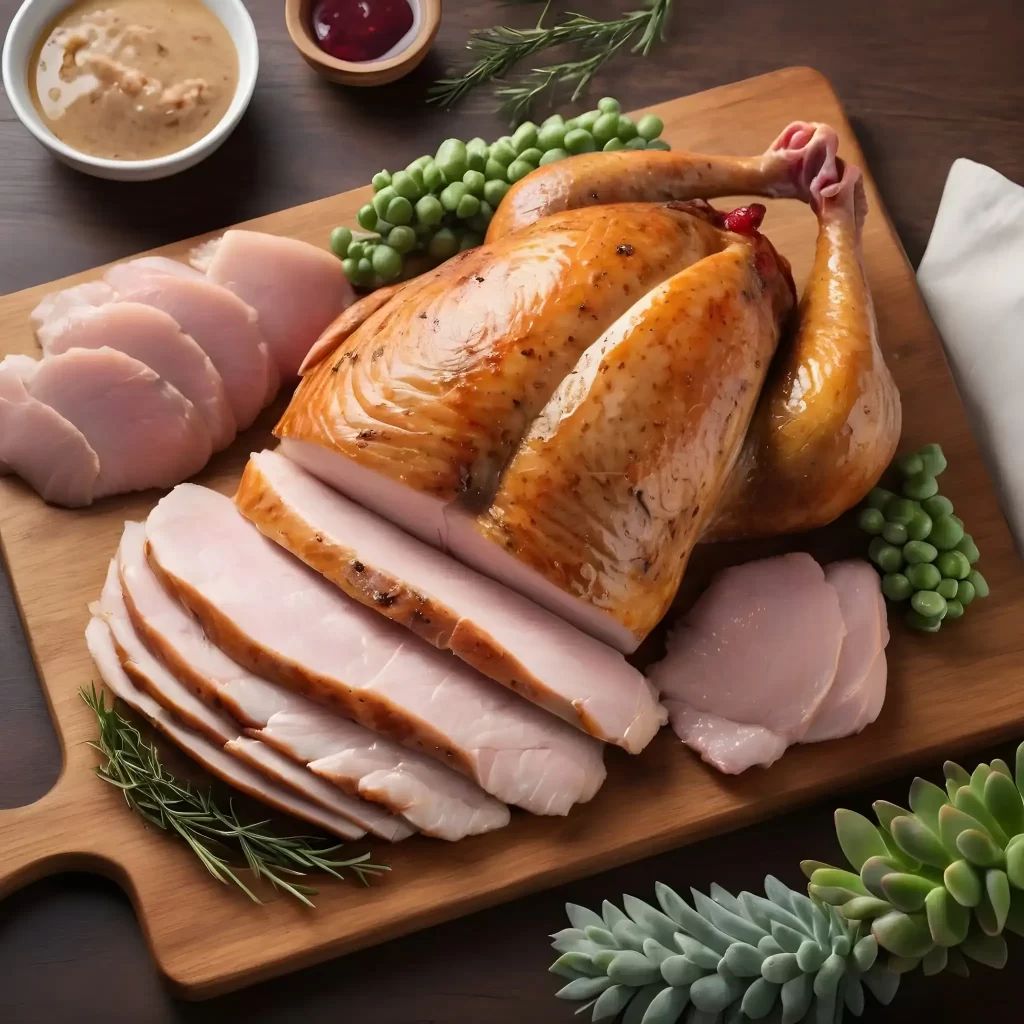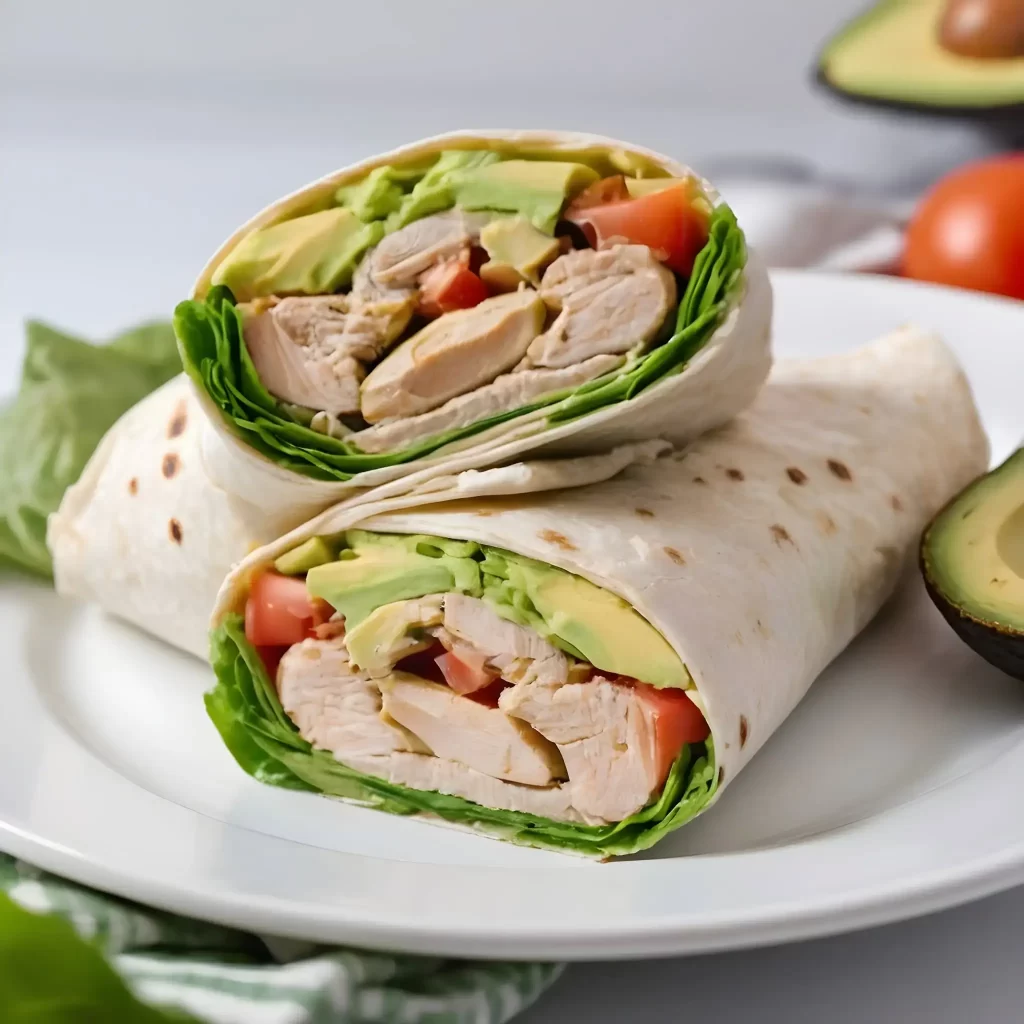Welcome to our comprehensive guide on the delectable world of turkey! Whether you’re a culinary enthusiast looking for new flavors or an athlete seeking optimal performance, turkey is a versatile protein that deserves a place in your kitchen. In this article, we’ll uncover the numerous health benefits, its impact on athletic performance, its superiority over other poultry and meats, and provide some tantalizing recipes to inspire your next turkey feast.
Turkey Delight: Exploring the Marvels of Turkey
Health Benefits:
- Lean Protein Source: Turkey is renowned for its high protein content, essential for muscle repair and growth.
- Low in Fat: Compared to other meats like beef or pork, turkey is lower in saturated fat, making it a heart-friendly option.
- Rich in Nutrients: It’s a good source of essential nutrients such as B vitamins, zinc, selenium, and omega-3 fatty acids, supporting overall health and well-being.
Athletic Performance:
- Muscle Recovery: The high protein content in turkey aids in muscle repair and recovery post-exercise.
- Energy Boost: Turkey’s nutrient profile, including B vitamins and omega-3 fatty acids, supports sustained energy levels during physical activity.
- Lean Muscle Building: With its low-fat content and high protein density, turkey contributes to the development of lean muscle mass, crucial for athletic performance.
Turkey Compared to Other Poultry:
Turkey stands out for its lean protein content compared to other poultry like chicken, duck, or goose. While other poultry may have higher fat content, turkey offers a balance of protein and lower fat, making it a preferred choice for those watching their fat intake. Additionally, turkey boasts a distinctive flavor profile, often associated with festive occasions like Thanksgiving and Christmas.
Turkey Compared to Other Meat:
In comparison to red meat like beef or lamb, turkey is significantly lower in fat and calories, making it a healthier option for those watching their dietary intake. Its mild flavor also makes it a versatile canvas for a wide range of culinary creations. Turkey’s nutrient profile, including its omega-3 fatty acid content, further enhances its appeal as a nutritious choice for overall health and well-being.

Different Parts of the Turkey:
Turkey Breast:
- Lean Protein: Turkey breast is exceptionally lean and low in fat, making it a healthy choice for those seeking a lighter option.
- Versatility: It can be roasted, grilled, or sliced for sandwiches, offering a tender and flavorful meat option.
Turkey Thighs:
- Moisture and Flavor: Turkey thighs have a slightly higher fat content compared to breast meat, resulting in juicier and more flavorful meat.
- Perfect for Braising: They are ideal for slow-cooking methods like braising, as they retain moisture and develop rich, succulent flavors.
Turkey Wings:
- Great for Snacking: Turkey wings are often enjoyed as a savory snack or appetizer, especially when seasoned and baked to crispy perfection.
- Versatile: They can be roasted, grilled, or simmered in sauces, offering a delicious finger-food option for casual gatherings.
Ground Turkey:
- Versatile Ingredient: Ground turkey is incredibly versatile and can be used in various dishes such as burgers, meatballs, tacos, and chili, offering a lighter alternative to ground beef.
Ways to Enjoy Turkey:
- Roasted Turkey with Herbed Butter and Cranberry Sauce
- Turkey Avocado Wrap with Spicy Chipotle Mayo
- Turkey and Vegetable Stir-Fry with Ginger Soy Sauce
- Turkey and Quinoa Stuffed Bell Peppers with Tomato Sauce

Nutritional Information (per 100g serving):
| Nutrient | Turkey Breast (100g) | Turkey Thighs (100g) | Ground Turkey (100g) | Turkey Wings (100g) |
|---|---|---|---|---|
| Protein | 29g | 20g | 20g | 23g |
| Fat | 1g | 8g | 12g | 13g |
| Saturated Fat | 0.3g | 2.5g | 3.5g | 3.5g |
| Cholesterol | 65mg | 100mg | 80mg | 70mg |
| Carbohydrates | 0g | 0g | 0g | 0g |
| Fiber | 0g | 0g | 0g | 0g |
| Sodium | 45mg | 60mg | 70mg | 55mg |
| Iron | 1.3mg | 1.2mg | 1.5mg | 1.1mg |
| Vitamin A | 0 IU | 10 IU | 5 IU | 8 IU |
| Vitamin C | 0mg | 0mg | 0mg | 0mg |
| Calcium | 7mg | 14mg | 10mg | 8mg |
| Omega-3s | 0.1g | 0.2g | 0.3g | 0.1g |
FAQs:
Q: What’s healthier, chicken or turkey?
A: Both chicken and turkey offer lean protein and low-fat options, making them healthy choices. It ultimately depends on individual preferences and dietary needs.
Q: Does turkey boost testosterone?
A: While turkey is a nutritious protein source, there’s no scientific evidence to suggest that it directly boosts testosterone levels. However, a balanced diet including turkey and other protein-rich foods may support overall health and hormone balance.
Q: Is turkey breast the healthiest part of the turkey?
A: Turkey breast is indeed one of the leanest cuts, but other parts like thighs and wings also offer nutritional benefits. It ultimately depends on your dietary preferences and goals.
Q: Can turkey be enjoyed year-round or is it primarily a holiday food?
A: While turkey is often associated with holiday feasts, it can be enjoyed year-round in a variety of delicious dishes, from sandwiches to stir-fries.
Q: How should leftover turkey be stored and reheated?
A: Leftover turkey should be promptly refrigerated and consumed within 3-4 days. To reheat, ensure thorough heating until piping hot to maintain food safety.